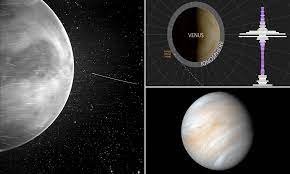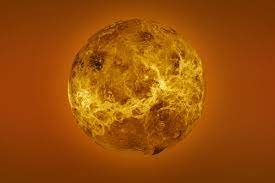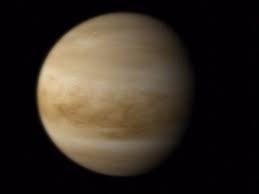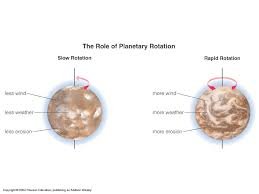Introduction
In the vast expanse of our solar system, Venus stands as a celestial mystery, captivating astronomers and space enthusiasts alike. Beyond its scorching surface and thick atmosphere lies a peculiar characteristic that sets it apart from its planetary counterparts - Venus rotates backward. In this article, we delve into the intricacies of this enigma, exploring the scientific underpinnings and the implications it holds for our understanding of the cosmos.

Understanding Retrograde Rotation
The Basics
Venus, unlike most planets, rotates on its axis in the opposite direction to the majority of celestial bodies in our solar system. While Earth, Mars, and the outer planets exhibit prograde rotation, Venus defies this norm with its retrograde motion. To comprehend this phenomenon, we must navigate through the fundamental principles of planetary rotation.
Gravitational Influences
The retrograde rotation of Venus is deeply rooted in the gravitational dynamics of our solar system. The interactions between celestial bodies, particularly the gravitational tugs from other planets, have played a pivotal role in shaping the rotational behavior of Venus. This gravitational ballet has led to the intriguing backward spin that continues to baffle scientists.

Unraveling the Mysteries
Atmospheric Impact
One key factor contributing to Venus's retrograde rotation is its dense atmosphere. The thick layer of clouds enveloping the planet exerts a substantial influence on its rotational dynamics. The intricate dance between atmospheric forces and the planet's rotation has sculpted Venus into a celestial anomaly.

Tidal Locking Possibilities
The concept of tidal locking, where a celestial body's rotation synchronizes with its orbit around a central body, adds another layer to the mystery. Some theories posit that Venus might have experienced a form of tidal locking, leading to its unique backward rotation. As we strive to unlock the secrets of Venus, these theories provide tantalizing avenues for exploration.

Scientific Significance
Insights into Planetary Evolution
Studying the retrograde rotation of Venus provides invaluable insights into the broader context of planetary evolution. By unraveling the mechanisms that govern such celestial phenomena, scientists can piece together the puzzle of our solar system's formation and development.
Comparative Planetary Science
Venus's backward rotation also offers a comparative lens through which scientists can examine the diverse array of planetary behaviors. This comparative planetary science approach allows us to draw parallels and distinctions, advancing our understanding of the underlying principles that govern celestial bodies.
Conclusion
In conclusion, the enigmatic backward rotation of Venus invites us to peer into the intricate tapestry of our solar system's celestial ballet. As scientists continue to unravel the mysteries shrouding this planetary anomaly, the implications extend far beyond the confines of our immediate cosmic neighborhood. Venus, with its retrograde rotation, stands as a testament to the ceaseless wonders awaiting discovery in the cosmos.

You must be logged in to post a comment.